06 May2019
By Matthew Wales
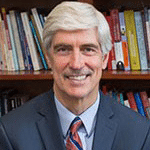 Looking to begin, or even expand upon, your career as an educational leader? AACTE’s Leadership Academy is your opportunity to discover who you are as an academic administrator. We asked a member of AACTE’s Academy Faculty, John Henning, to elaborate upon his experiences as a three-time attendee. Henning had this insight to offer, as well as advice for future Academy participants:
Looking to begin, or even expand upon, your career as an educational leader? AACTE’s Leadership Academy is your opportunity to discover who you are as an academic administrator. We asked a member of AACTE’s Academy Faculty, John Henning, to elaborate upon his experiences as a three-time attendee. Henning had this insight to offer, as well as advice for future Academy participants:
What year(s) did you attend the Academy, and what position were you in at the time?
I first attended the Academy as a newly-hired, outside department chair in 2009. I attended again in 2013, when I was promoted to Associate Dean. Finally, I attended a third time in 2015 when I began my dean’s position.
29 Apr2019
By Linda Minor
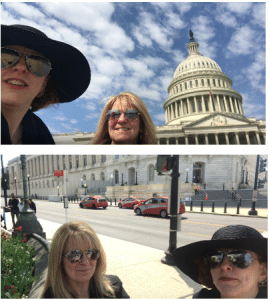
Being new to AACTE, I learned a lot about what to expect during Day on the Hill when Deborah Koolbeck and I recently went to the Capitol. I have never been on the Capitol grounds before, although I have lived in the DC area for over 20 years, and it is beautiful. The weather was perfect. View video clip about Capitol Grounds.
So, what can you expect during Day on the Hill? Tuesday will be a full-day of orientation at the hotel where you will build skills and prepare for their meetings with your congressional offices. Then, on Wednesday morning you will be bused to Capitol Hill for scheduled appointments with your elected officials. “But what about their luggage,” I asked? Attendees can bring luggage on the bus to the hill—or you can stay in town a little longer and take advantage of all the activities DC has to offer. View video clip about luggage.
29 Apr2019
By Michael Maher

What does it mean to be a leader? Are leaders born or are they developed?
If you Google the word “Leader,” depending on the day, you may end up with between 4 and 6 billion hits. There is certainly no shortage of opinions, courses, or books on leadership. Some individuals are leaders by virtue of their title, others are considered leaders whether or not they have a title. Whether leadership has been thrust upon you or it has slowly developed over time, you understand that leadership carries the challenge of expectations and obligations.
As a person who thinks about the concept of leadership quite a bit, it seems to me that, although some individuals may embody characteristics that lend themselves to leadership, true leaders are developed over time through a combination of professional development and lived experience.
As a leader you have an obligation to those you lead, an obligation to the profession, and an obligation to yourself. In the field of education, and in teacher preparation in particular, there are no shortage of leaders. Those who are the most impactful, however, are the ones who continuously seek to improve their knowledge, skills, and relationships.
29 Apr2019
By Jerrica Thurman
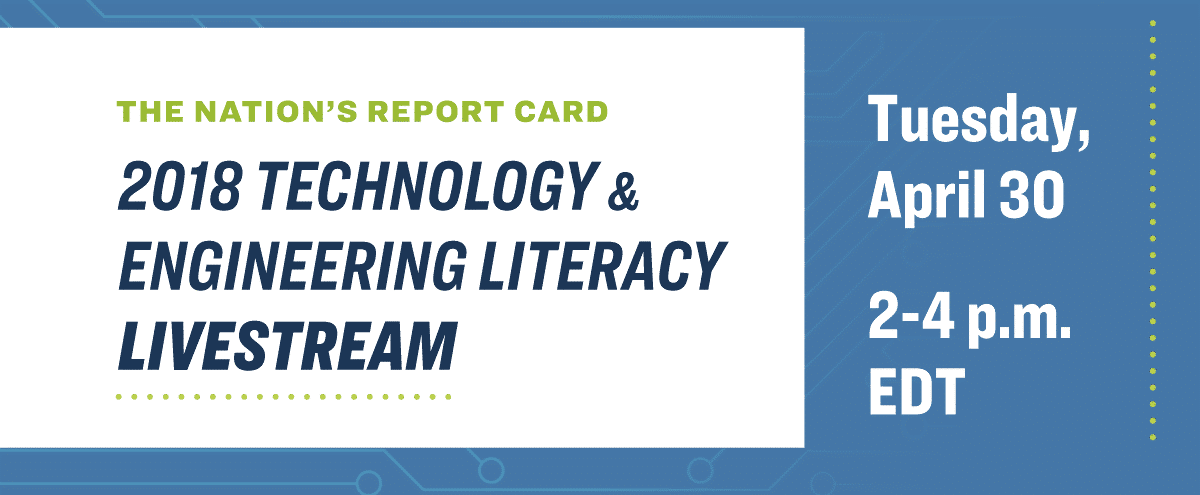
AACTE invites you to view a livestreamed panel discussion about the second release of the NAEP Technology and Engineering Literacy (TEL) results by the National Assessment Governing Board and the National Center for Education Statistics. The livestream is on Tuesday, April 30 from 2:00-4:00pm EDT. Register now!
In response to the increasing role of technology in students’ lives, the National Assessment of Educational Progress (NAEP) administers the Technology and Engineering Literacy (TEL) assessment—the first one of its kind in the United States. TEL adds valuable information to what NAEP reports for science and mathematics. This assessment measures students’ capacity to understand technology and how to design objects, processes, and systems to meet human needs. During the livestreamed event, presenters will discuss how the 2018 results compare to the 2014 debut of TEL and show how this assessment breaks the testing mold.
19 Apr2019
By Matthew Wales
AACTE received high praise for its sessions during the 2019 Annual Meeting in Louisville, KY. Such acclaim can be contributed to one important element: the competitive nature of the Annual Meeting selection process. Each year, AACTE receives many more proposals for consideration than can be accommodated, so only the “best of the best” content makes its way into the programming for the conference.
Want to see your work featured during AACTE’s 2020 Annual Meeting in Atlanta? Then take note, because you will want to prepare a proposal that stands out in our peer-review process. Follow these five tips, and you are likely to distinguish yourself from the rest:
- Mind the Details –Y our proposal will be evaluated based upon the 10 criteria and elements outlined in the Expectations for Presentations. Familiarize yourself with these prior to writing your proposal. And most importantly, do NOT include any information that identifies either the authors or the institutions in the written proposal.
- Be Succinct and Specific – Choose a title that clearly conveys your topic. Proposals selected for presentation tend to state their subject matter upfront in the title. Additionally, the majority of chosen proposals contain short, concise abstracts that highlight the main focus of the presentation.
19 Apr2019
By Ann Shillingford-Butler
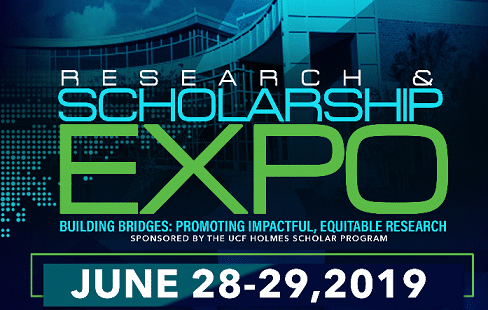
I have exciting news for all master’s and doctoral students! The University of Central Florida (UCF) Holmes Scholar Program will host a Research & Scholarship Expo, Building Bridges: Promoting Impactful, Equitable Research, on June 28-29 in Orlando, FL. The Expo will include sessions on developing and conducting qualitative and quantitative research, exploring and securing external grant funding, developing winning manuscripts (conceptual and empirical), problem-solving through the dissertation journey, building meaningful mentoring relationships, and other practical topics related to successfully navigating higher education and the publication process.
Our keynote speaker will be David H. Jackson, Jr. dean of the School of Graduate Studies and Research at Florida A& M University.
Although the Research Expo will be hosted by the UCF Holmes Scholar program, the sessions are open to all master’s and doctoral students. For registration and hotel information, please visit https://2019ucfholmesscholarexpo.eventbrite.com.
For more information, feel free to contact me at Dr-S@ucf.edu or Amanda Wilkerson at Amanda.Wilkerson@ucf.edu.
12 Apr2019
By Denise Pearson
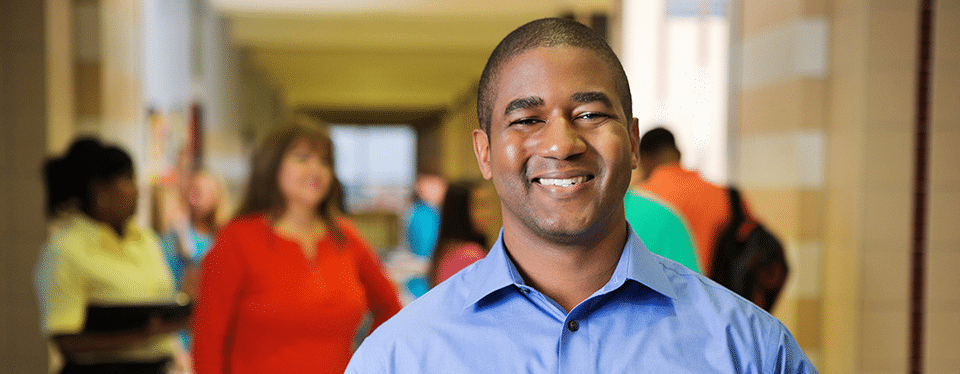
Historically black colleges and universities (HBCUs) and other minority-serving institutions (MSIs) are uniquely positioned to engage higher education policymakers, researchers, practitioners, and other stakeholders to increase the participation of males of color throughout the teacher pipeline. To that end, Project Pipeline Repair: Restoring Minority Male Participation and Persistence in Educator Preparation Programs is a three-year, research-based initiative that emphasizes cross-sector collaboration as foundational to addressing three interconnected problems: nationwide teacher shortages, the lack of teacher diversity, and the teaching profession narrative.
On October 2-5, 2019, the State Higher Education Executive Officers Association (SHEEO) will host the Project Pipeline Repair Summit that will bring together P-16 policy, institutional, and community leaders to culminate this collaboration between state agencies, HBCUs, and partnering school districts in four states (Arkansas, Louisiana, Mississippi, and South Carolina). During the Summit, we will engage in deep conversations with higher education policy and practice experts, including educator preparation researchers and practitioners. Representatives from other MSIs and organizations with similar aims are welcomed, and will also be present to expand the learning and build capacity in these important policy and practice areas.
11 Apr2019
By Katrina Norfleet
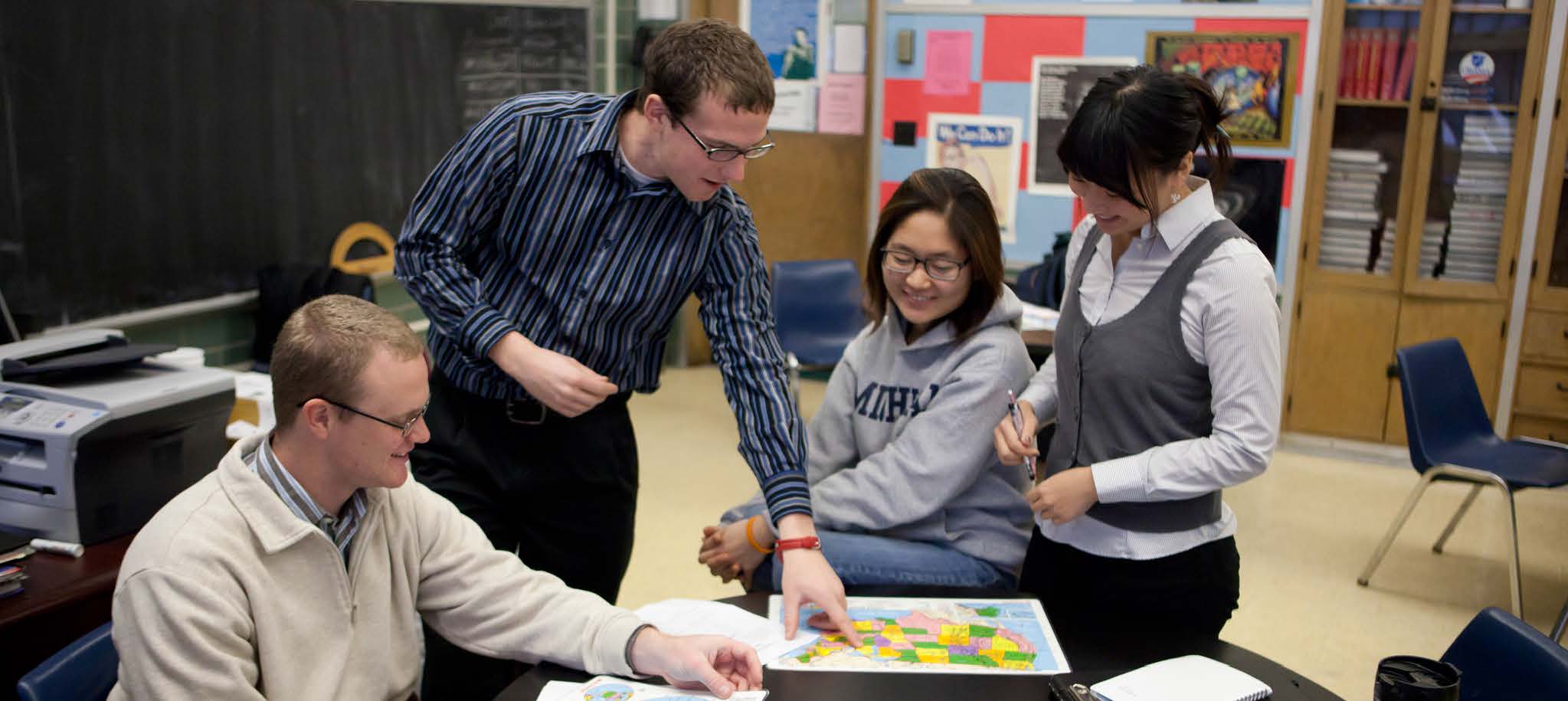
TeachingWorks at the University of Michigan is presenting its second annual Practice-Based Teacher Education Workshop, an opportunity for teacher educators to examine and try out practice-based teacher education pedagogies. The workshop, will take place on July 8-10, 2019 at the University of Michigan School of Education, in Ann Arbor, Michigan.
The presentations will include artifacts of practice such as videos and transcripts to create more time for teacher educators to practice teacher education pedagogies.
11 Apr2019
By Linda Minor

Every year, AACTE’s Washington Week attracts attendees from all over the nation. “Your Voice Matters” is this year’s theme and will feature three events:
The State Leaders Institute, June 2-3, is for current leaders of AACTE’s state chapters. This program is the forum to discuss important trends in state policies related to educator preparation. Attendees interact with other leaders from across the United States, learning strategies and collaborating to increase their state chapters’ capacity and advocate for the profession.
The Holmes Scholars Summer Policy Institute, June 3, is for current AACTE Holmes Doctoral Scholars. This allows attendees to have an insider experience in the world of education policy. Students will learn about the implications of current policy on research and programming that focus on minority populations.
05 Apr2019
By Matthew Wales

Are you ready to take the next step in your academic career, but uncertain where to begin? Learn what it takes to be an effective and authentic administrator and advocate during AACTE’s Leadership Academy this summer. Register today for this premier educator preparation training in Pittsburgh, PA, June 23-27.
In just the first 24 hours of AACTE’s Leadership Academy, you will
- Explore the concept of who you are as a leader.
- Examine who it is you may lead, and how you effectively lead them.
- Identify elements of leadership that are critical to your current or aspirational academic leadership position.
- Practice the concepts learned in a unique, hands-on simulation that will put your newly-acquired skills to the test.
05 Apr2019
By Shanett Dean
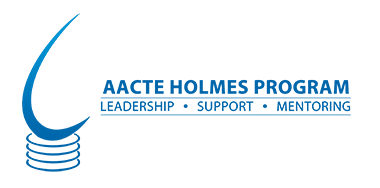
Data is a central and essential element in the work of scholar-researchers. Big data or data sets with information too sizeable or intricate for traditional statistical software, can be particularly challenging to analyze. Some students may be yet unaware of the nuances of big data and how it can inform their research. Additionally, others may wonder where to start or find sources for big data that can yield helpful insights for their work.
If you would like to increase your working knowledge of what big data is, where to find it, and how it can grow your analysis, Florida Atlantic University’s (FAU) Holmes Scholars invites you to attend “The Story of BIG DATA with All the Small Details” presented by Charles Dukes. This dynamic presentation on the mammoth data sources that are ubiquitous to our lives will not only provide participants with context and approaches for understanding big data, attendees will leave with a viable research agenda useful for their careers as social science researchers.
The presentation will take place on April 10, 2019 at 2:30 p.m. EST. If you are interested in video-conference attendance please RSVP for access to join us via Skype at http://bit.ly/HolFAU.
For more information, please contact me at sdean13@fau.edu.
02 Apr2019
By Katrina Norfleet
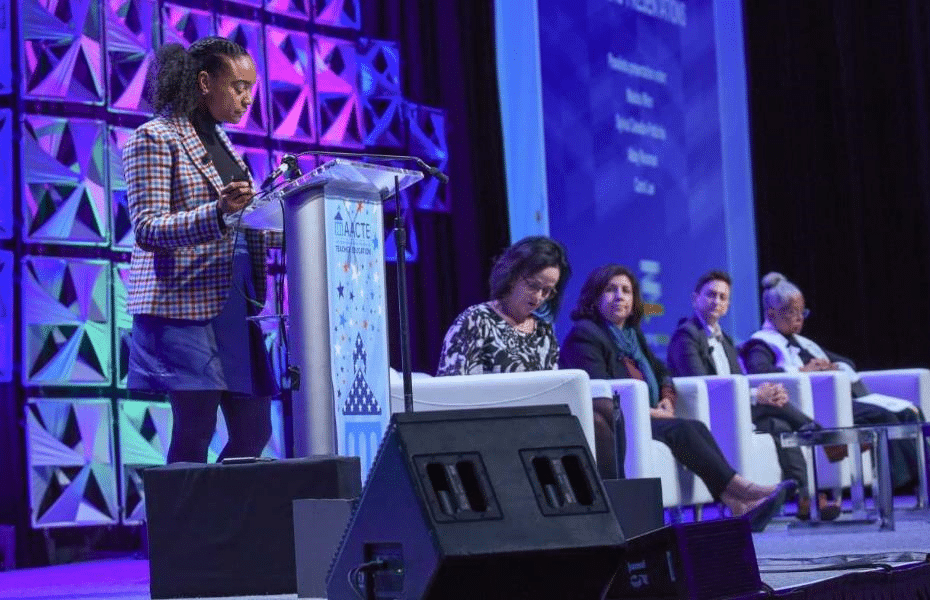
During the “Disrupting the Persistence of Oppression” Deeper Dive session, panelists explored the question: How does knowing content matter for disrupting the persistence of oppression? The panel discussion was moderated by Deborah Ball, director of TeachingWorks at the University of Michigan and included Maisha Winn, Chancellor’s Leadership Professor in the School of Education and co-director of the Transformative Justice in Education (TJE) Center at the University of California, Davis; Sylvia Celedon-Pattichis, senior associate dean for research and community engagement and professor of bilingual and mathematics education at the University of New Mexico; Abby Reisman, assistant professor of teacher education at the University of Pennsylvania; and Carol Lee, former Edwina S. Tarry Professor of Education, School of Education, of Social Policy and African-American Studies at Northwestern University.
Winn began the panel discussion with a scholarly presentation focused on restorative justice and shared a narrative framework she developed for teachers to consider when seeking justice in the school setting. The framework is based on four pedagogical stances: history matters, race matters, justice matters, and language matters. She presented the framework and shared her desire to add a fifth stance: futures matter.
02 Apr2019
By Ward Cummings
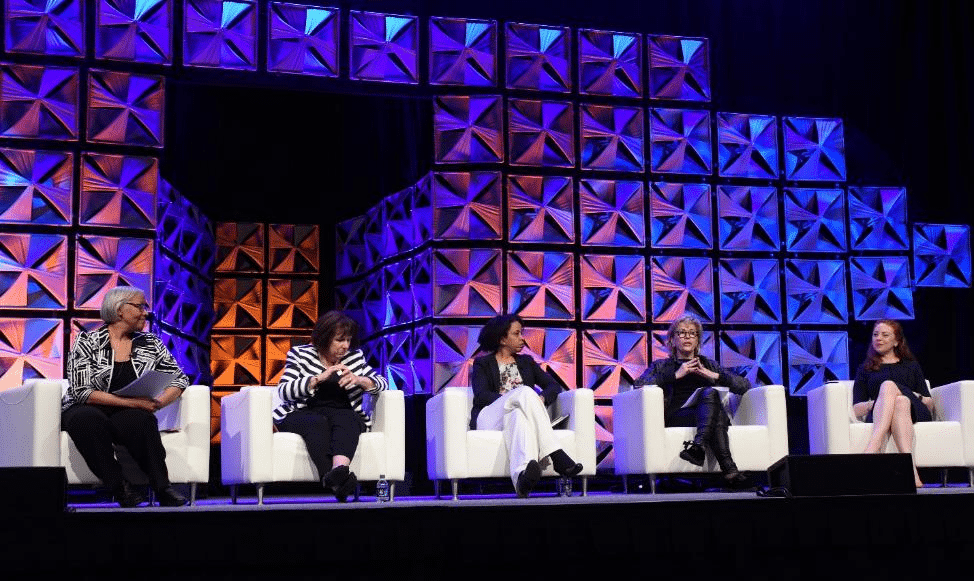
The “AACTE Initiatives toward Increasing Diversity, Equity and Inclusion in Colleges of Teacher Education” Deeper Dive session was held during the 2019 Annual Meeting. The session highlighted the association’s current, ongoing, and future commitments in these areas in a discussion moderated by Jennifer Robinson of Montclair State University and included panelists Lillian Sharon Leathers of William Paterson University of New Jersey and AACTE’s Jacqueline King, Jacqueline Rodriguez, and Jane West.
King, author of AACTE’s recently published Education Students and Diversity: A Review of New Evidence report, described the findings, which showed that education is the least diverse in bachelor’s degree fields. King shared other important data such as 50% of African American education students and 40% of Hispanic education students are independent; 30% of African American students and 20% Hispanic students had children; and 20% African American students were single parents. She emphasized that child care, for example, is an issue that cannot be ignored when considering the matter of diversity. In addition, 4% of Hispanic students are first generation students and 22% do not have a parent that has graduated from high school. The study revealed that one in five African American students work full-time and that the median family income of white, dependent students is more than double of their African American and Hispanic peers.
02 Apr2019
By Jerrica Thurman
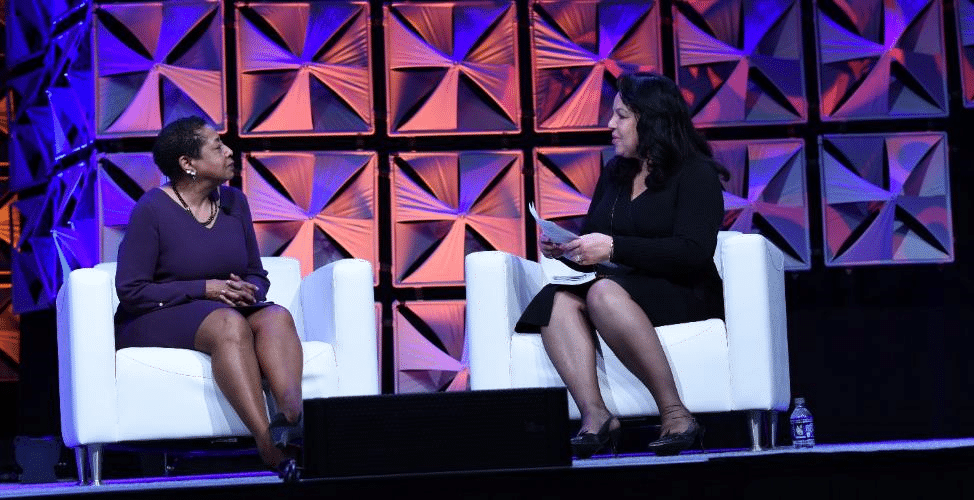
Annual Meeting Closing keynote speakers Mary Dilworth, editor of Millennial Teachers of Color, and Leslie Fenwick, dean emerita of Howard University, presented the topic, “Millennial Teachers of Color: Follow Their Lead, They Know Where We Need To Be,” on Sunday, February 24. During the session, the educators explored millennial teachers through a new lens by examining the intersection of race ethnicity and generation.
Dilworth has centered her career on teacher quality and preparation, with a keen focus on racial/ethnic and linguistic diversity and equity issues. Recently, she was a co-principal investigator for the National Science Foundation (NSF-DR12) project designed to recruit, prepare, license, and employ middle and high school science teachers from underrepresented groups. In addition, she served as a visiting professor and director of the Center for Urban Education at the University of the District of Columbia. Earlier in her career, she was a research fellow with Howard University’s Institute for the Study of Educational Policy (ISEP) and became widely recognized for heightening the national discourse on the disparate impact of licensing tests on underrepresented groups.
02 Apr2019
By Katrina Norfleet
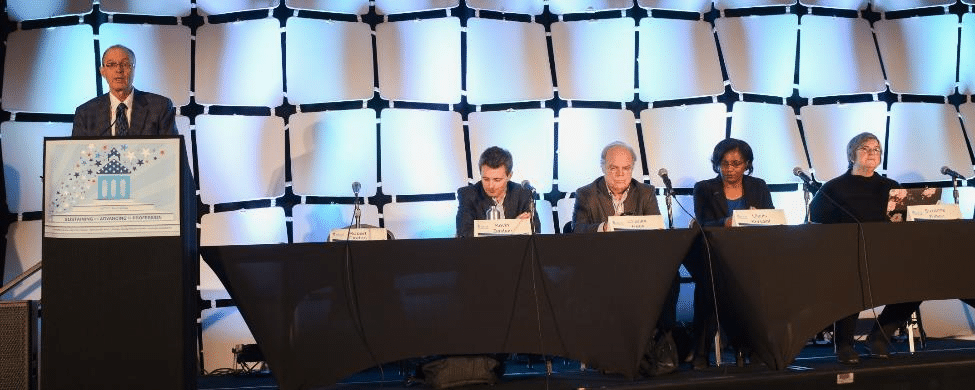
The “Data Systems” Deeper Dive session, held during the AACTE 2019 Annual Meeting examined the possibilities and challenges for using information and evidence-based research to improve teacher education programs. The discussion was led by moderator Robert Floden, dean of the College of Education at Michigan State University, and included four panelists: Kevin Bastian, senior research associate, University of North Carolina (UNC) and director, Teacher Quality Research Initiative Education Policy Initiative at Carolina (EPIC); Charles Peck, a professor of teacher education and special education at the University of Washington; Suzanne Wilson, Neag School of Educatin Endowed Professor of Teacher Education at the University of Connecticut (UConn); and Gladis Kersaint, dean, Neag School of Education at UConn.
The robust discussion opened with Bastian sharing the details of a two-pronged study conducted by EPIC that pairs student teaching data with workforce outcomes. He stated, “The problem we’re interested in addressing is how can programs take a mountain of performance assessment data and identify what we might call actionable evidence within it.”
 Looking to begin, or even expand upon, your career as an educational leader? AACTE’s Leadership Academy is your opportunity to discover who you are as an academic administrator. We asked a member of AACTE’s Academy Faculty, John Henning, to elaborate upon his experiences as a three-time attendee. Henning had this insight to offer, as well as advice for future Academy participants:
Looking to begin, or even expand upon, your career as an educational leader? AACTE’s Leadership Academy is your opportunity to discover who you are as an academic administrator. We asked a member of AACTE’s Academy Faculty, John Henning, to elaborate upon his experiences as a three-time attendee. Henning had this insight to offer, as well as advice for future Academy participants:


















